The latest innovation offered at University Hospitals Geauga Medical Center, the da Vinci robotic-assisted minimally invasive surgery system helps patients recover quickly
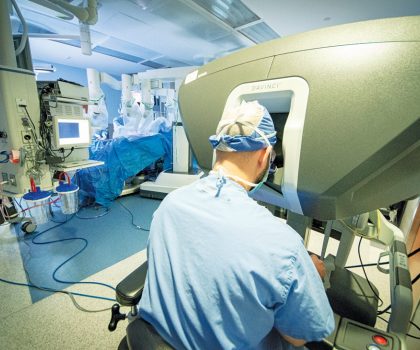
By Ken McEntee
A promising cure rate helps to make treating urological cancers, like prostate, kidney, bladder and testicular cancers, a rewarding career, shares Rashed Ghandour, MD, a urologic oncologist at University Hospitals Geauga Medical Center.
“We’re lucky in urology to be able to bring a lot of benefits to patients because of the very high rate of cure compared to some other cancers where the treatment is very often about palliation,” says Dr. Ghandour, who joined UH Geauga Medical Center in September to oversee the expansion of general urology and urologic oncology state of the art services in the community.
Among UH Geauga Medical Center’s most recent advancements was the addition of the da Vinci robotic-assisted minimally invasive surgery system.
“We’re fortunate to be able to offer robotic surgery here at UH Geauga Medical Center,” Dr. Ghandour says. “This is a tool that you normally see in major academic centers. It gives patients in the community access to the most advanced technology close to home, without having to go Downtown.”
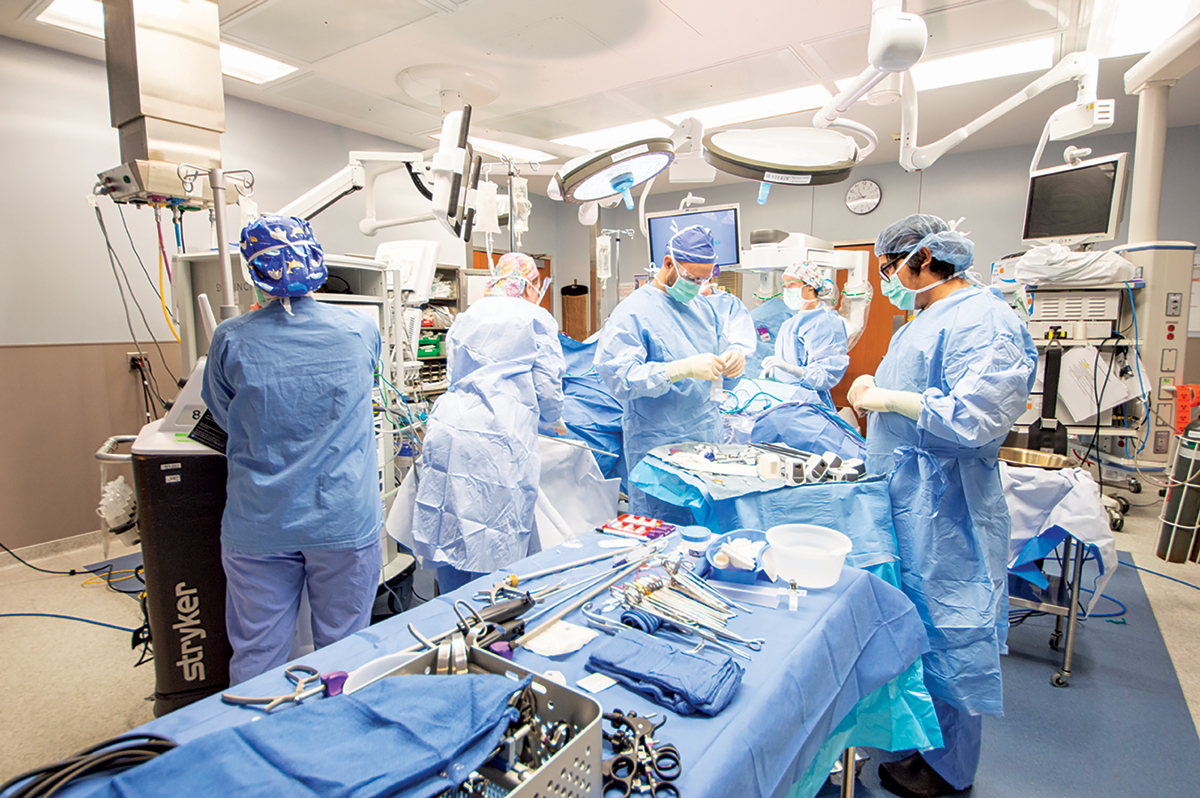
Using da Vinci, a surgeon operates from a control console that provides a three-dimensional view of the operating field and a magnification 10 to 15 times that of the human eye. These features make it easier for the surgeon to see vital, anatomical structures, such as vessels and nerves. Wristed robotic arms provide the surgeon with a full range of motion that allows for exceptional precision.
Instead of the large incisions made during open surgery, surgeons using da Vinci make a few tiny incisions. The procedure usually results in less pain, less bleeding, a lower risk of infection, a shorter hospital stay, and a quicker recovery time compared to traditional open surgery. Typically, Dr. Ghandour says, a patient will go home the day after a robotic procedure, compared to an average of three to four days following open surgery.
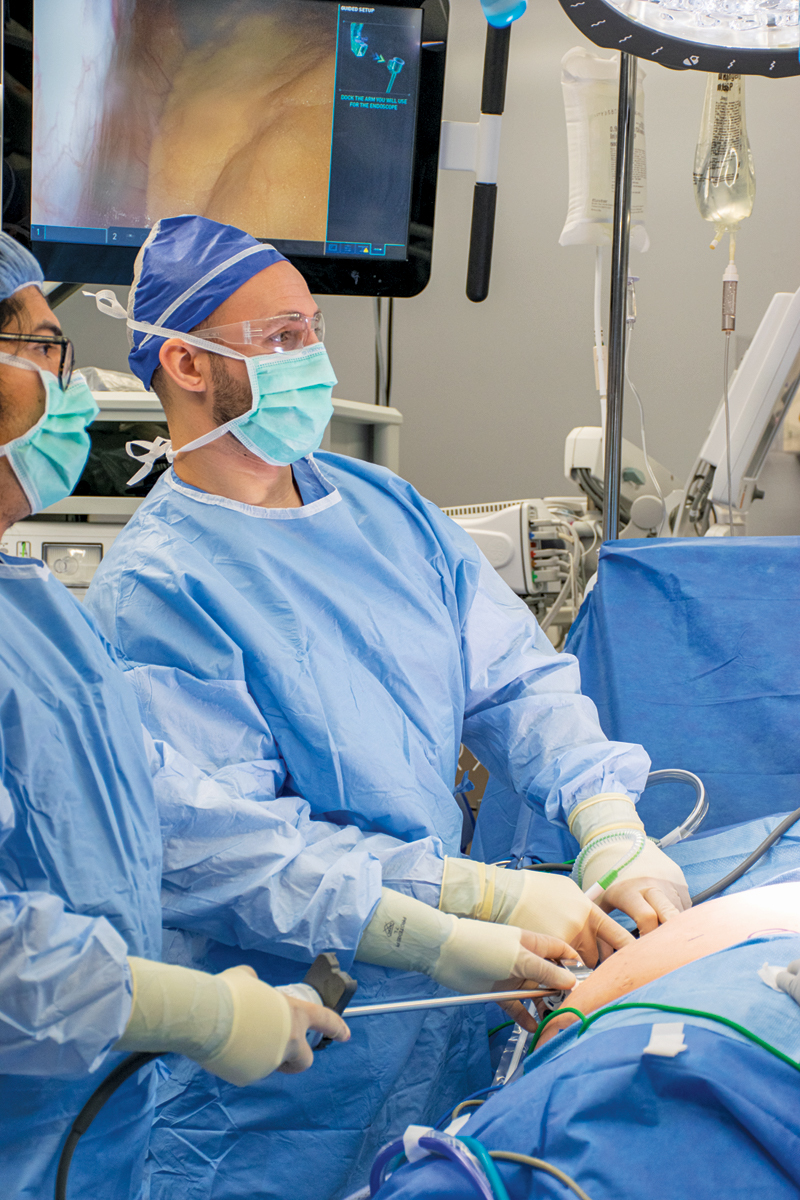
“There is sometimes a misconception that the robot is doing the operation,” Dr. Ghandour says. “Actually, the surgeon is completely in control. The robotic arms precisely mimic the movements of my hands. And if there is ever an emergency situation, I am only a few feet away from the patient.”
The robotic option is most appropriate for procedures where a large, open incision isn’t necessary. For example, Dr. Ghandour says, about 95 percent of all prostate cancer surgeries in the U.S. are done robotically nowadays. Open surgery is typically necessary for the removal of a large tumor or an organ, like a kidney or a bladder; however, procedures such as the robotic partial nephrectomy (pictured) can be performed with the minimally invasive robot.
Prior to joining UH Geauga Medical Center, Dr. Ghandour says he performed more than 250 robotic surgeries. After completing his residency in Beirut, Lebanon, he completed a fellowship in urological oncology in Dallas, Texas. He is becoming a father for the first time this March, and dearly appreciates family and community values.
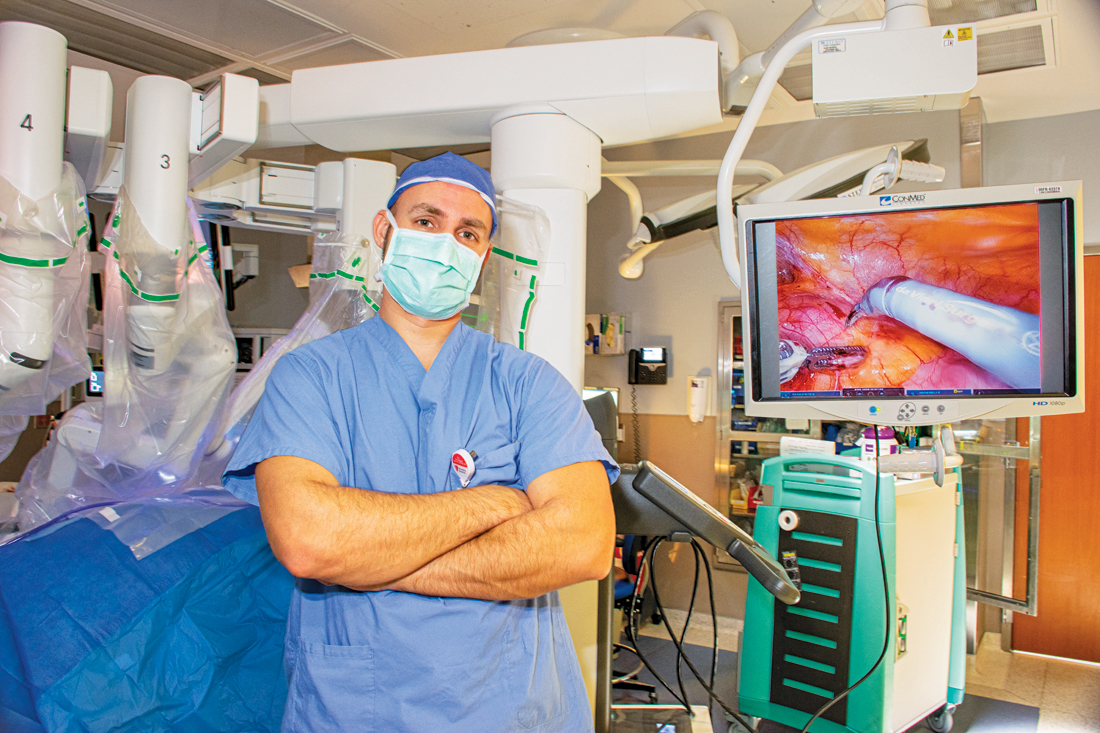
“I came to UH Geauga to expand the available services for general urology and urologic oncology for the people in dire need of proper medical/urological care in Geauga County, Lake County, Northern Portage County and Ashtabula County,” he says. “Our facility has a well-trained, dedicated staff and all of the best tools required, including imaging tools, diagnostic and interventional radiology tools. We can do advanced MRI and nuclear imaging, as well as biopsies and treatments, all right here in the community.”
In addition to cancer, Dr. Ghandour treats many non-cancerous conditions, like kidney stones and benign prostatic hyperplasia (BPH)—a common enlargement of the prostate that can cause frequent and/or difficult urination and loss of bladder control. He uses a variety of techniques, which include laser as well as robotic technologies, depending on the size of the prostate and the patient’s medical condition.
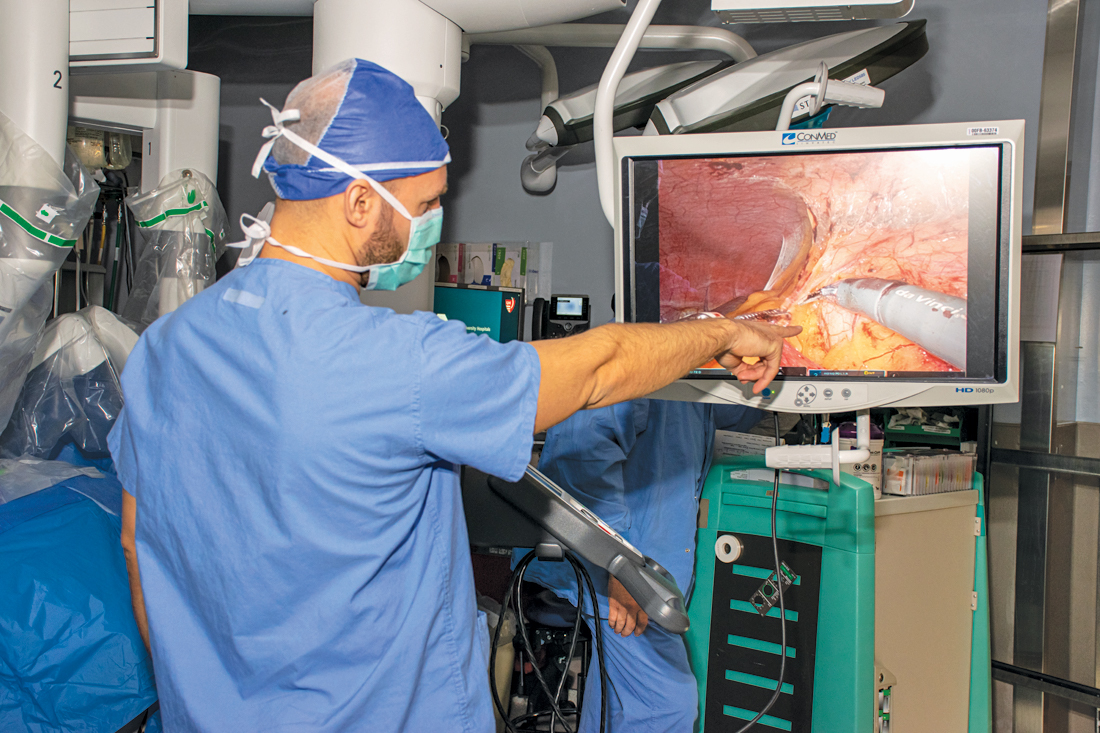
“While treating prostate conditions, we aim to preserve sexual function and try to prevent any risk of incontinence, which can be distressing for patients,” Dr. Ghandour assures. “We’re treating not only the cancer or other conditions, but the patient as a whole. We aim to maintain important aspects in our patients’ quality of life and allow them not just to have additional years to live, but to have more quality years to live.”
You can schedule an appointment for urology issues by calling 440-901-6816. UH Geauga Medical Center is located at 13207 Ravenna Road, in Chardon. Learn more by visiting UHHospitals.org/locations/uh-geauga-medical-center/find-a-doctor/Ghandour-Rashed-1316440654.
